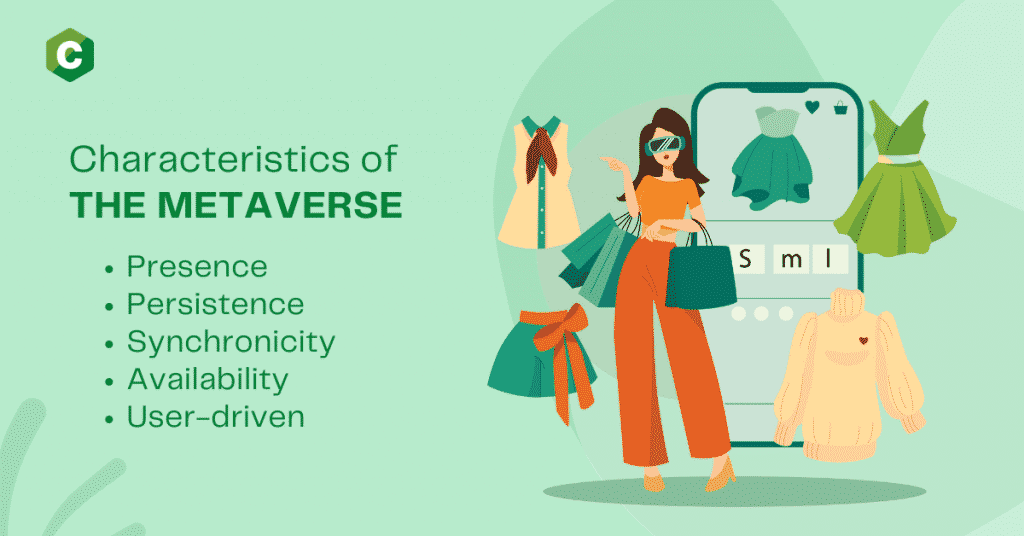The metaverse involves a shared virtual space where virtual avatars represent users. It consists of multiple compatible online spaces where people can shop, travel, and interact. The idea of a metaverse originated from Neal Stephenson in His fiction novel, Snow Crash. Metaverse marketing, therefore, offers businesses a chance to explore the virtual market.
In 2021, Mark Zuckerberg laid out his vision for the future of social media, emphasizing the Metaverse in formalized form. Although already a work in progress, the COVID-19 pandemic massively boosted the creation of virtual spaces and venues to accommodate events that had to be canceled. Moreover, there is an increased demand for more interactive ways to connect with others as most people work remotely.
Marketing in the Metaverse
The digital world has kept evolving since its inception. Metaverse marketing is the digital marketing of the future. It is a new marketing system that works like a blockchain. It’s also decentralized, so it has no servers or administrators, which allows you to connect with your customer base in new techniques. Therefore, the future of marketing will be strongly linked to new ways of reaching consumers through virtual reality, augmented reality, and mixed reality.
Characteristics of the Metaverse
Presence
The Metaverse will always exist regardless of time and place.
Persistence
In the metaverse, a persistent space is continuously shaped with environments that continue to grow and evolve regardless of whether or not users are connected to and interacting with them.
Synchronicity
In the Metaverse, users will interact with one another and the digital environment in real-time. Like in the physical world, meta users will react to their virtual environment and each other.
Availability
Meta users will be able to log on simultaneously, and there will be no limit on the number of participants.
Economy
The Metaverse has a fully functional economy. It uses a native block-chain based currency to buy, sell, or trade products in the metaverse.
User-driven
Metaverses are more than just virtual spaces for users to hang out. Users can also create their content or enhance existing content that other users can enjoy.

How do you build your brand in the Metaverse?
Use of technology
The metaverse is a 3D digital world with virtual land and objects. As a brand interested in metaverse marketing, you should familiarise yourself with its technologies which are listed below:
Virtual Reality (VR) and Augmented Reality (AR)
AR uses digital visual elements and characters to morph reality. Users can view their surroundings with interactive digital visuals. On the other hand, VR is a computer-generated virtual environment where users can explore using VR headsets, gloves, and sensors.
Blockchain
This technology provides a decentralized and transparent solution for digital proof of ownership, transfer of value, among others. Cryptocurrencies will enable users to transfer value at will.
3D Reconstruction
This is not a new concept, especially in real estate. Some agencies adopted 3D reconstruction technology to generate virtual property tours. Therefore, buyers can virtually look around potential homes.
Artificial Intelligence (AI)
It has been applied before in facial recognition. AI is applied in the non-player characters (NPC) within the metaverse. NPCs are designed to react and respond to players’ actions. It is also used to create fully customized metaverse avatars.
The internet
The internet is used in the metaverse to collect and provide data from the physical world. Therefore, this would increase the accuracy of digital representations.
Brand strategy
A successful branding strategy consists of the brand’s mission, its promises to its customers, and how these are communicated. For your brand to succeed in Metaverse marketing, you need a solid brand strategy. For example, you can retail virtual goods like accessories to digital avatars. You can also establish your virtual venue like a 3D museum and offer tours or tryouts to make it interactive.
Brand authenticity
Your brand has to be authentic, stay true to its brand values, and focus on enhancing user experience. Moreover, it has to be transparent and consistent in its messaging and branding initiatives. An authentic brand in the metaverse can help you build stronger relations with your customers and stand out from the competition.
Real-life marketing vs. Metaverse marketing
Real-life marketing usually consists of any promotional materials featured offline. It involves traditional channels like billboards, referrals, handouts, and printed media. It was a popular marketing strategy where marketing professionals interacted with their target audience in physical locations. On the other hand, Metaverse marketing is a new marketing system where professionals interact with their audience in a virtual location. Moreover, it involves a blockchain system where buyers and sellers can exchange values through cryptocurrencies, tokens, NFTs, among others.
The main difference is how an audience encounters a marketing message. While real-life marketing uses traditional media, metaverse marketing uses a blockchain where buyers and brands interact and transfer value.

Why should you market in the Metaverse?
Importance of Metaverse marketing
Metaverse marketing is a change from traditional marketing towards creating brand engagement that is more engaging and fun while also being less intrusive. The Metaverse has been a trending topic on Twitter and other social channels even before Facebook announced changing its name. After the announcement, Meta received more acceptance and became widely popular.
Facebook’s rebranding serves as a reminder that brands must quickly invest in the Metaverse, as the software is making human interactions and experiences more believable. Therefore, the metaverse can be considered the next digital evolutionary of today’s internet.
Opportunities in Metaverse marketing
With the introduction of new technologies every day, making the most of metaverse marketing by creating the perfect marketing strategy is still ambiguous. Therefore, coming up with the right approach might be the key to building your brand in the metaverse. Some of the strategies include:
Virtual venues
Using 3D virtual reality technology, brands can now create fully immersive and interactive virtual venues, locations, universes from scratch. Moreover, brands can collaborate with already established virtual worlds such as Gucci in Roblox to hold events within them to increase their visibility.
Virtual ownership
It is necessary to place a higher value on digital assets and showcase acquiring virtual ownership rights since most people today spend their time online. Non-Fungible Tokens (NFTs) are a popular form of virtual ownership because they allow ownership by creators, individuals, and brands. They are also transferrable to other virtual entities at will. So far, only big brands like Nike have released high-valued limited editions NFTs. However, open-source solutions will make it easier for brands to build and launch their NFTs soon.
Virtual possessions
Today, people are willing to pay for virtual possessions like accessories for in-game play to make their avatars look unique and give them special abilities. Therefore, partnering with games like Fortnite has introduced the most promising opportunities.
Virtual entertainment
The distinction between real and virtual interactions is slowly fading, resulting in new entertainment and immersive virtual reality experiences. As a result, real-life behavior is transferred to digital platforms, creating a new reality. The most frequent way to have these experiences is through mobile AR.

Stumbling blocks in Metaverse marketing
Seamless integration
Seamless integration is crucial to avoid alienating players from the brand. Sometimes brands might still have trouble finding their proper place in the metaverse because the technology is still new. Therefore, plan your placements well and make sure that it feels natural and well-integrated in the metaverse.
Data privacy & security
New technology requires advanced security measures, meaning there should be the development of new data protection measures where none previously existed. Current concepts like personal verification need to improve to avoid security hacks. Therefore, the issues on data security and privacy should receive priority treatment.
Accessibility
The metaverse will be easily accessible by its users in the future. Currently, accessibility is a problem due to the technical constraints of the environment. Most people do not have full access to the equipment like high-end computers and virtual reality lenses required to understand the metaverse fully. Therefore, this dramatically limits the potential for brands to market their businesses.
Brand Integrity
As mentioned above, the metaverse is available to anyone, meaning that brands must practice caution in maintaining their reputation. The more control people have over it. The more likely a brand will produce inappropriate content. For this reason, the brand’s marketing methods must be accurate and precise so that users feel the urge to connect.

Conclusion
With the evolution of metaverse marketing and technologies, an opportunity exists for brands to get on board with this trend before their competitors. Using this time to your advantage, you can build up the skills and experience needed to dominate the metaverse and deliver the ultimate customer experience.
Yes, the immersive and 3D features of the metaverse unlock opportunities for consumer-facing brands. You can create a virtual store and sell products.
About ten companies are working on Metaverse and its developments. They include Meta, NVIDIA, Epic Games, Microsoft, Apple, Decentraland, Roblox Corporation, Snapchat, Unity Software, and Amazon.
Yes, you can invest through exchange-traded funds (ETFs), buying virtual land, and in digital assets like cryptocurrencies and NFTs.

